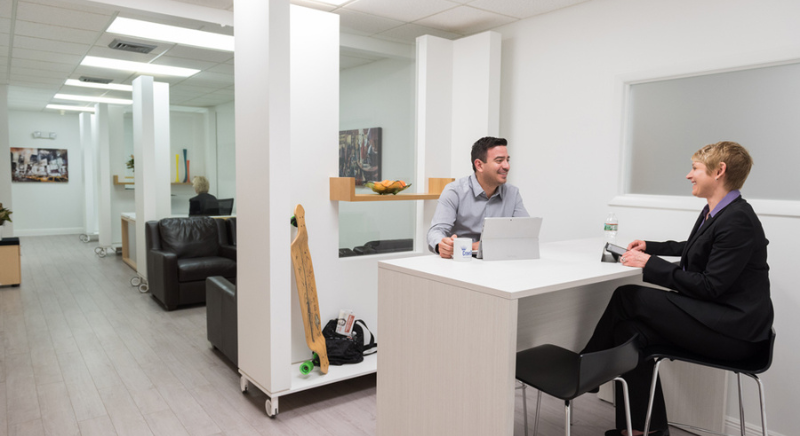In a business environment where speed, efficiency, and adaptability are paramount, finding the right workspace can be a make-or-break decision. The age-old approach of locking into lengthy leases and spending ample time on office setup is steadily becoming obsolete. Today, businesses, ranging from fledgling startups to established giants, are seeking avenues that minimize delays and offer flexibility. Enter the realm of turnkey office spaces, among which serviced offices have emerged as a paragon of convenience and adaptability.
At the heart of the appeal of turnkey office spaces lies their ready-to-use nature. Gone are the days when businesses had to allocate weeks or even months to design, furnish, and equip a new office. With turnkey solutions, it’s all about moving in and hitting the ground running. This speed not only ensures that there’s minimal loss of productivity but also that businesses can capitalize on opportunities without being hampered by logistical delays.
Cost-efficiency is another compelling advantage. Traditional office setups come with myriad hidden costs. From the obvious ones such as furniture and equipment to the less conspicuous like maintenance, utility bills, and other recurring expenses, the financial outlay can be daunting. With turnkey office spaces, especially flexible workspaces, many of these costs are bundled into a single, transparent package. This bundling eliminates unexpected expenses, providing businesses with clarity on their financial commitments.
But the merits of turnkey solutions are not just about speed and costs. It’s about the flexibility they bring to the table. One of the inherent challenges with traditional office spaces is their rigidity. If a business experiences rapid growth, the existing space may become a constraint, necessitating a disruptive and costly move. Conversely, if the business faces a downturn, they might be saddled with excess space and a lease that’s draining resources. Turnkey office spaces, with their flexible contracts, allow businesses to scale up or down based on their real-time needs.
Serviced offices, a cornerstone in the turnkey office space domain, further accentuate this flexibility. They offer an environment where not only is the physical space adaptable, but the services are too. Need a conference room for a day? It’s available. Require additional admin support for a short-term project? It can be arranged. This a la carte approach to services ensures that businesses pay only for what they use, driving efficiency and cost savings.
Another not-so-obvious advantage is the environment that turnkey office spaces create. Many flexible workspaces, for instance, are designed with modern aesthetics, fostering a conducive work environment. Moreover, being in a space shared with other businesses, there’s an atmosphere of dynamism and energy. It’s not just about having a functional workspace; it’s about being in an environment that inspires and invigorates.
A factor that’s been thrust into the spotlight, especially post the pandemic, is the role of turnkey office spaces in business continuity planning. In an uncertain world where disruptions can arise without warning, having a flexible workspace solution becomes an asset. Businesses that had opted for turnkey solutions, like flexible workspaces, found themselves better equipped to navigate the challenges, be it rapidly setting up remote teams or downsizing without significant penalties.
In conclusion, the evolution of the business environment demands a reevaluation of how we perceive workspaces. While traditional offices have their merits, the tide is undeniably shifting towards more adaptable solutions. Turnkey office spaces, led by the allure of flexible workspaces, offer businesses an optimal blend of cost-efficiency, flexibility, and an environment primed for productivity. As businesses strive to remain competitive in an ever-evolving marketplace, these spaces aren’t just an option; they are fast becoming an imperative.




